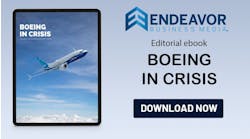As the concept of the “gig” economy continues to gain currency in supply chain circles, helped along by Uber-like startups that offer one-off package and parcel deliveries, the trend has extended into warehousing. Just as you can now hire a driver to pick up and deliver freight of various weights and dimensions, you can also hire temporary staff to manage your inventory or stock your shelves.
One of these under-the-radar startups is Wonolo, which operates off an app that connects companies with potential employees. While the Wonolo name is unknown to most, the company largely responsible for its funding is one of the best-known food & beverage companies in the world: The Coca-Cola Co.
Out-of-stocks are a big deal for consumer goods manufactures like Coke, and the company reportedly loses $1 billion annually in sales due to the difficulty in quickly replenishing its retail customers with fresh stock. That led to Coke’s investing in Wonolo in 2013, a startup that could quickly develop an app that would match workers with employers, based on the latest mobile and logistics technologies.
In 2014, Coke launched The Coca-Cola Founders platform, which operates on a similar premise as the “Shark Tank” TV show by identifying entrepreneurs with ideas that line up with technologies or service models that could prove useful to Coke. In exchange for its providing resources and seed capital, Coke acquires a minority stake in the startups. The key is that the startups are free to pursue initiatives that fully embrace new technologies and business models that might get bogged down were they to be launched through Coke’s traditional, century-old corporate structure.
“Most established companies struggle with the speed and flexibility they need to stay ahead of the digital revolution,” says David Butler, Coke’s vice president of innovation and entrepreneurship. As he notes in his recent book, Design to Grow, “The way startups design everything from their products, to their staff, partnerships, and revenue model enables agility.”
Overcoming Decision Fatigue
Too many manufacturers are afflicted with “decision fatigue,” notes Mike Burnette, director of the University of Tennessee’s Global Supply Chain Institute, and that can have a detrimental effect on their agility and profits. “Coming to work every day and making complex changes to meet the latest product regulations that the consumer does not value on thousands of SKUs can depress the best supply chain talent,” Burnette says.
One way companies can manage this complexity is to apply a standardization strategy known as platform lifecycle management (PLCM) to their supply chains. One company aiming to do just that is snack-food giant Mondelez International, which worked with the University of Tennessee on ways to standardize SKUs, suppliers and supply chain processes. The idea of PLCM is hardly new, dating back at least 90 years to its emergence in the U.S. auto industry.
“Platform management is a simple concept that requires company-wide coordination and adoption,” explains Daniel Myers, Mondelez’s executive vice president of integrated supply chain. “A focus on standardization will drive speed and margin improvement.”
In a UT study sponsored by Mondelez, a global fragrance company used PLCM to reduce 16 different lavender fragrances down to just three, leading to a 15% cost savings. “When companies simplify their offerings, they can standardize their suppliers and processes,” Burnette points out. “That means less time spent on daily business and more time to improve strategies and respond to market influences."



